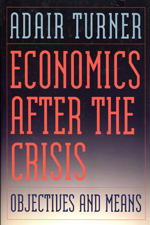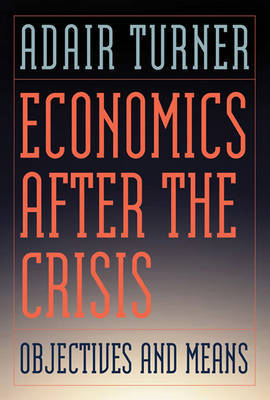Economics after the crisis
objectives and means
- ISBN: 9780262017442
- Editorial: The MIT Press
- Fecha de la edición: 2012
- Lugar de la edición: Cambridge (MSS). Estados Unidos de Norteamérica
- Encuadernación: Cartoné
- Medidas: 24 cm
- Nº Pág.: 128
- Idiomas: Inglés

The global economic crisis of 2008--2009 seemed a crisis not just of economic performance but also of the system's underlying political ideology and economic theory. But a second Great Depression was averted, and the radical shift to New Deal-like economic policies predicted by some never took place. Perhaps the correct response to the crisis is simply careful management of the macroeconomic challenges as we recover, combined with reform of financial regulation to prevent a recurrence. In Economics After the Crisis, Adair Turner offers a strong counterargument to this somewhat complacent view. The crisis of 2008--2009, he writes, should prompt a wide set of challenges to economic and political assumptions and to economic theory. Turner argues that the faults of theory and policy that led to the crisis were integral elements within a broader set of simplistic beliefs about the objectives and means of economic activity that dominated policy thinking for several decades. This dominant discourse cast economic growth as the objective, markets as the universally applicable means of achieving it, and inequality as inevitable and necessary. Turner takes on these assumptions point by point, arguing that more rapid growth should not be the overriding objective for rich developed countries, that inequality should concern us, that the pre-crisis confidence in financial markets as the means of pursuing objectives was profoundly misplaced, and that these conclusions have broad implications for the case for economic freedom, for specific areas of public policy (including financial regulation and climate change), and for the discipline of economics itself.









